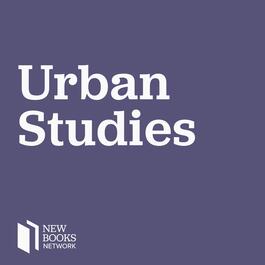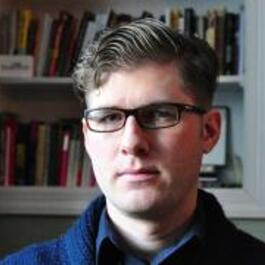
New Books in Urban Studies
Interviews with scholars of urban studies about their new books
Show episodes

Carolyn T. Adams et. al, "Greater Philadelphia: A New History for the Twenty-First Century" (Penn Press, 2025)
Informed by current scholarship and richly illustrated with full-color photographs and maps, Greater Philadelphia: A New History for the Twenty-First Century (Penn Press, 2025) brings to the public an up-to-date, diverse history of Philadelphia across its many dimensions. Volume 1 adopts "Greater Philadelphia" to indic

Ihnji Jon, "Cities in the Anthropocene: New Ecology and Urban Politics" (Pluto Press, 2021)
Climate change is real, and extreme weather events are its physical manifestations. These extreme events affect how we live and work in cities, and subsequently the way we design, plan, and govern them. Taking action 'for the environment' is not only a moral imperative; instead, it is activated by our everyday experien

William J. Glover, "Reformatting Agrararian Life: Urban History from the Countryside in Colonial India" (Stanford UP, 2025)
Reformatting Agrarian Life presents a stealth urban history from the countryside that foregrounds the mutual entanglements of agrarian and urban expertise. William J. Glover traces an essential genealogy for understanding how urbanism unexpectedly left the city in late colonial India and began to settle in agrarian spa
In this episode of the CEU Review of Books Podcast, I sat down with Cynthia Paces to talk about her new book, Prague: The Heart of Europe (Oxford UP, 2025). Prague is the first English-language book to trace the history of the city from the tenth century to the present. Cynthia discusses her personal connection to Prag

C. Yamini Krishna, "Film City Urbanism in India: Hyderabad, from Princely City to Global City ,1890-2000" (Cambridge UP, 2025)
Film City Urbanism in India: Hyderabad, from Princely City to Global City ,1890-2000 (Cambridge UP, 2025) is about the reciprocal relationship between cinema and the city as two institutions which co-constitute each other while fashioning the socio-political currents of the region. It interrogates imperial, postcolonia

Claudia Gastrow, "The Aesthetics of Belonging: Indigenous Urbanism and City Building in Oil-Boom Luanda" (UNC Press Books, 2024)
After centuries of colonial rule, the end of Angola’s three-decade civil war in 2002 provided an irresistible opportunity for the government to reimagine the Luanda cityscape. Awash with petrodollars cultivated through strategic foreign relationships, President José Eduardo dos Santos rolled out a national reconstructi

